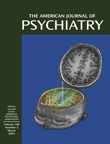The Transformation of Psychology: Influences of 19th-Century Philosophy, Technology, and Natural Science
What began as a seminar at York University in Toronto supported by a grant from the Gersten Foundation was transformed into a marvelous collection of essays focusing on the more complex psychohistorical social forces that led to the foundations for the science of psychology. Looking beyond the simplistic version of most psychological textbooks on the history of the science of psychology, the authors take us on a historical journey from the beginning of the 19th century, when Kant expressed his skepticism that psychology would ever become a true natural science, to the 20th century, in which the foundations of the science of psychology were well established. “How was it possible,” the authors ask, “that the transformation took place so rapidly?”
In 11 chapters we are provided with a narrative that takes us into the complex world of the development of psychology as a science, including 1) Darwin’s theory of evolution, 2) phrenology, 3) theories of memory, 4) psychological technology and the World Colombian Exposition in 1893 in Chicago, 5) mathematical psychology and empiricism, including Fechner’s “golden section” as a mathematical proportion of visual beauty, 6) Ernest Mach’s replacement of the concept of causation with the concept of function, 7) the invention by Charles Babbage of the analytical engine as a precursor to robotics and information systems, 8) the technology of the “tempest prognosticator” in 1851 presented at the Great Exhibition in London as a “device intended to predict the weather by using the presumed instinct of leaches,” 9) an examination of the influence of the philosophies of Hegel and Kant on modern psychology, 10) an exploration of Marx and Dilthey’s theories and the concept of cogitamus or “we-think,” which deals with the relevance of a social context in history and human thinking as opposed to Descartes’s “Cogito ergo sum” and the development of a natural science of human beings and empathy, and, finally, 11) an examination of the impact of genetic and embryological influences on early development (focusing on the prenatal environment and the so-called critical period) and the biological underpinnings of modern psychology. What a journey!
Throughout the first part of the book, we are taken on a political journey in which religion and philosophy are set up as a gauntlet for the psychological “secularists” and the concept of the natural world is seen as superseding metaphysics. One example is worth noting as we hear about it in today’s parlance. The authors introduce us to Tyndal’s writings on the efficacy of prayer and Gaulton’s reactions by writing a text on the “statistical inquiries into the efficacy of prayer” in 1872. These controversies set the stage for looking at history as a basis for many of our current dilemmas in psychology on how to measure ideas and behavior in real life.
For most of us, the origins of the science of psychology are grounded in Wundt’s theory of memory and the recognition of the importance of experimental design, Fechner’s introduction to psychophysics, Ebbinghaus’s laboratory for the study of memory, and Gaulton’s introduction to statistics and measurement of mental abilities. The authors take us deep into the historical, religious, secular, mathematical, materialistic, anthropological, and physiological foundations of psychology. Unfortunately, the current divorce of psychology and philosophy has left the mental health profession with a theoretical void as new technologies, best practices, and standards of care are mistaken for a theory and philosophy of psychology. Without appeal to the history of psychology, and lacking a grounding in philosophy, the field of psychology seems doomed to a new technological reductionism and confined to a fate of never fully knowing what it is all about as a science.
At times this book was difficult to read. There are aspects of the prose that are tedious and cumbersome. Some of the pictures, however, are superb, and, as the philosopher Spinoza reminded us, all things worth knowing are as difficult as they are rare. The ideas presented in this book are well worth knowing.



